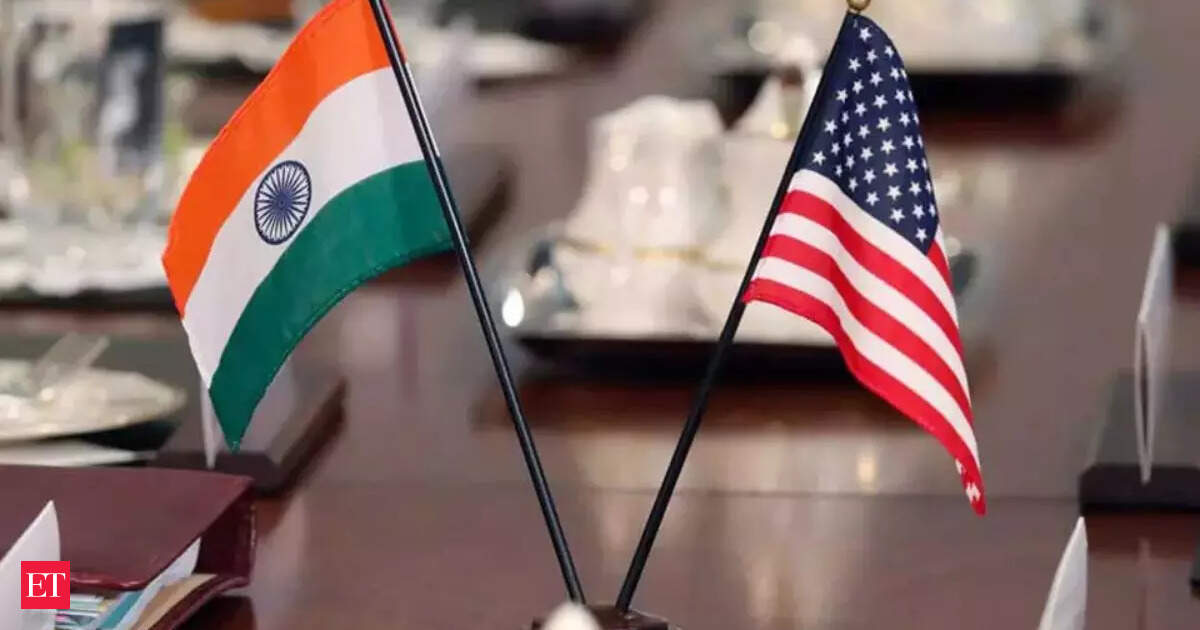Citing historical data, it said that between 2014 and 2016, global grain prices collapsed — wheat dropped below USD 160 per tonne wiping out farmers across Africa.
If India removes tariffs, cheap, subsidised US grains could similarly flood Indian markets during global price crashes, the think tank cautioned.
The Global Trade Research Initiative (GTRI) said that any commitment to permanently lower farm tariffs under the India-US free trade agreement (FTA) would be irreversible and strategically unwise.
“India must retain policy space to manage food stocks, support rural incomes, and respond to global shocks. In today’s geopolitically unstable world, food security must remain sovereign,” GTRI Founder Ajay Srivastava said.
US products like rice, dairy, poultry, and GM soy benefit from deep subsidies, which gives them an unfair advantage over Indian producers. “Tariff cuts on US farm goods could undermine India’s food security by exposing small farmers to cheap, subsidised imports and global price volatility,” he said, adding, India must retain tariff flexibility to protect over 700 million rural livelihoods and avoid repeating past mistakes made under global trade deals. As India and the United States are negotiating in Washington for the deal, pressure is mounting to lower tariffs on key US agricultural exports including rice, dairy, poultry, corn, almonds, apples, and genetically modified soy.
He also said that India’s dairy import restrictions, such as the requirement for animals not to be fed meat, blood and internal organs of other animals, block US dairy access.
The US sees this as too strict, but imagine eating butter made from the milk of a cow that was fed meat and blood from another cow.
“India may never allow that. India’s dairy sector is built on millions of smallholders with one or two cows or buffaloes. Opening it to subsidised US imports could destroy livelihoods,” Srivastava said.
Similarly, poultry imports, if liberalised, would hit local producers hard, given India’s fragmented cold chain and weak SPS (sanitary and phytosanitary) enforcement.
The US also criticises India’s rules on genetically modified (GM) food as unclear and not science-based, which delays American biotech exports.
“India, however, is cautious due to strong public opposition to GM foods and concerns about environmental risks. It also notes that major regions like the EU are GM-free, and adopting GM crops could affect soil health and hurt India’s exports,” he added.
Proposals to import genetically modified corn and soymeal under “controlled” models — such as crushing GM soy seeds in coastal zones and exporting the meal — are fraught with risk, he said.
He further said that India’s loose supply chains mean GM traits could easily leak into domestic systems, contaminating local crops and hurting exports to GM-sensitive markets.
“India’s requirement for non-GM and GM-free certificates for 24 products, even when those crops are not commercially modified, is seen by the US as unjustified. But India insists it is necessary to maintain traceability and consumer confidence,” the GTRI Founder said.
Further, he said that US agricultural exports are propped up by massive subsidies.
In some years, these subsidies exceeded 50 per cent of production value: rice (82 per cent), cotton (74 per cent), canola (61 per cent), wool (215 per cent).
Products benefiting from such support include apples, almonds, corn, dairy, poultry, and ethanol — all of which the US is keen to sell to India.
“If allowed in duty-free, these subsidised goods would undercut Indian producers and distort markets,” he said, adding, “India uses tariffs, ranging from 0 per cent to 150 per cent, to support its farm sector, which employs over 700 million people”.
Unlike the US, where agriculture is corporatised, Indian farming is a livelihood issue.
Tariffs are essential to protect small farmers, manage price volatility, and ensure food security.
“The US itself imposes steep tariffs on products like tobacco (350 per cent) and uses complex non-ad valorem duties to shield its farm sector — a reality often ignored in trade talks,” he said.




